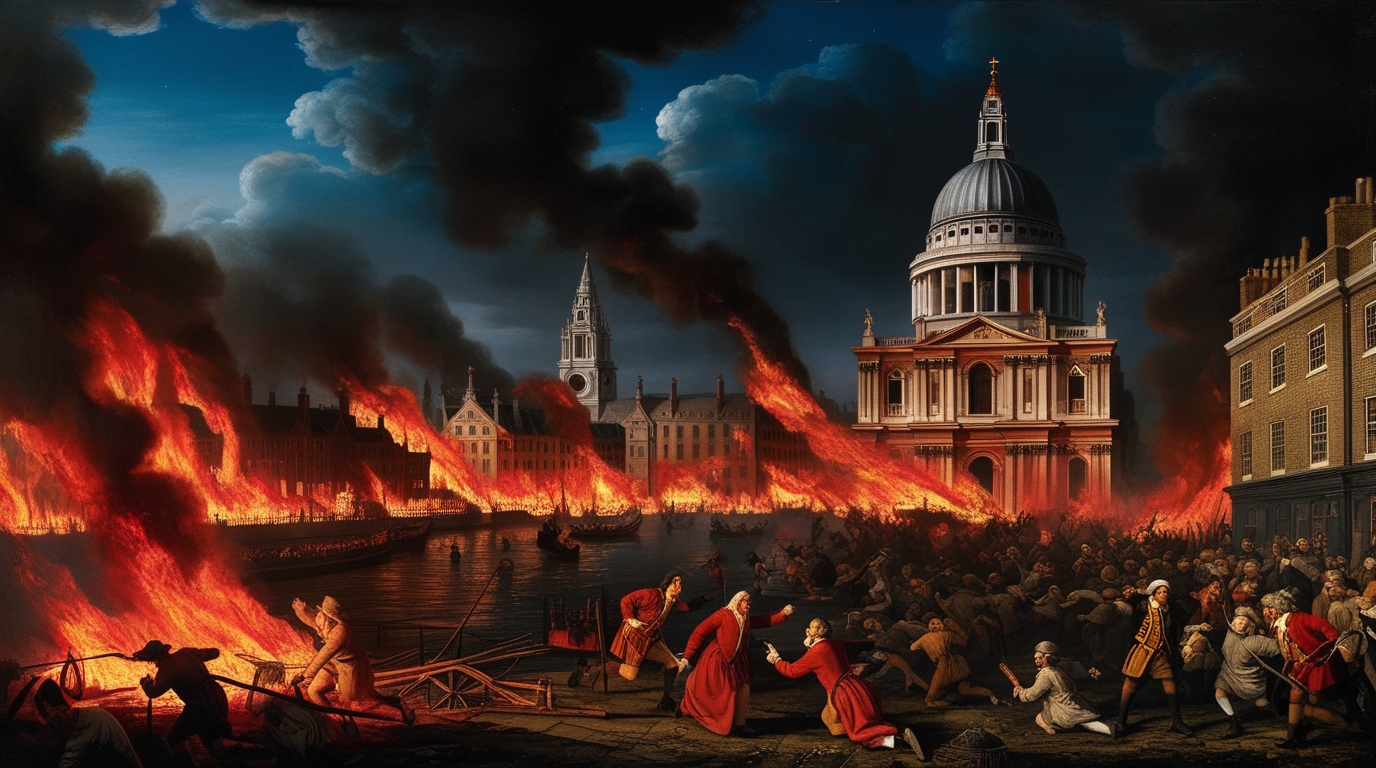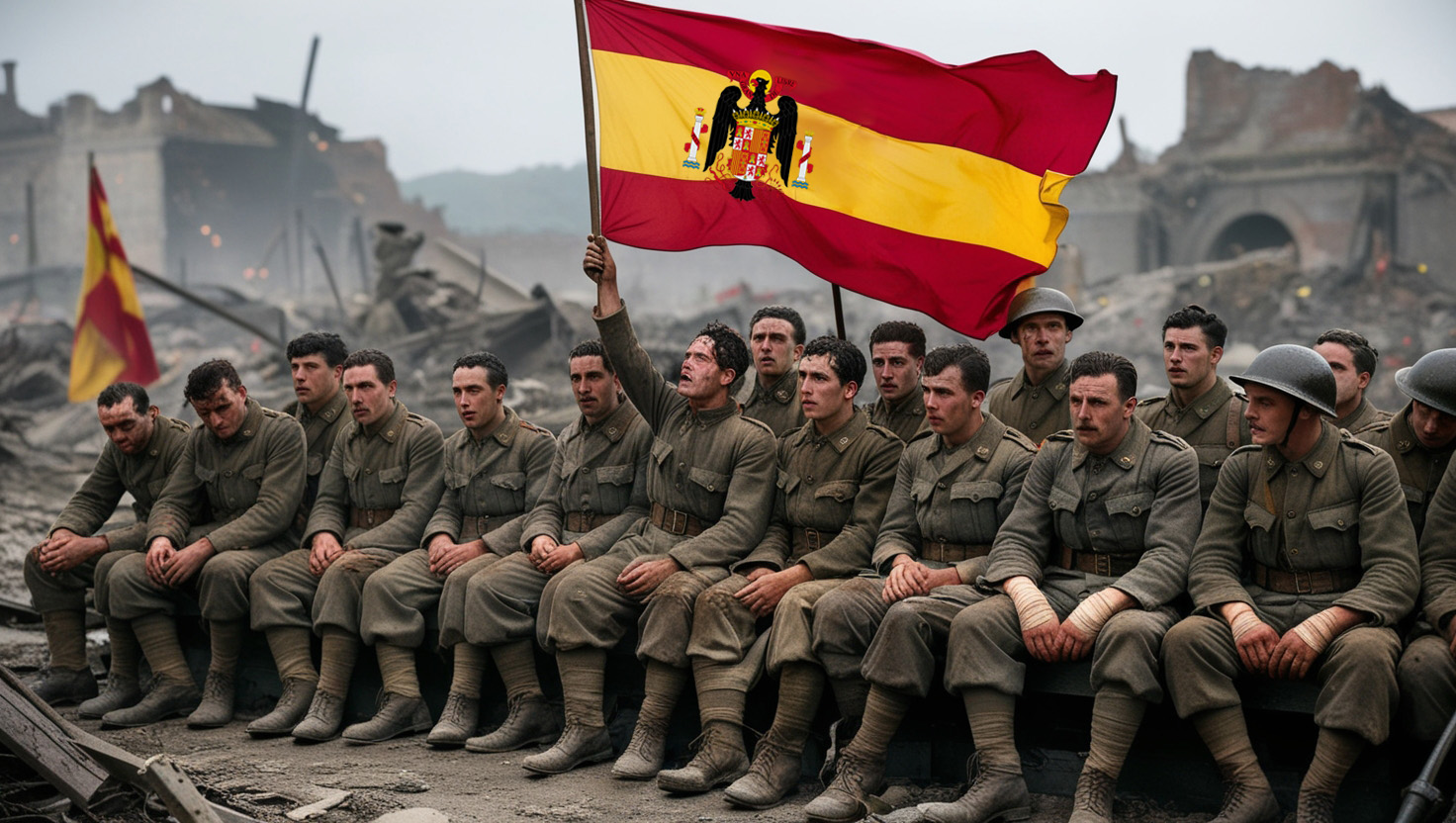The Great Fire of London in 1666 stands as one of the most pivotal events in the city’s rich history. This catastrophic blaze not only transformed the landscape of London but also had far-reaching consequences on its architecture, society, and urban planning. Let’s dive into the historical timeline of this monumental event, explore its impact, and even consider some alternate history scenarios: What if the fire had never occurred?
The Outbreak of the Fire
The Great Fire of London began in the early hours of September 2, 1666, in the bakery of Thomas Farriner on Pudding Lane. A careless spark is believed to have ignited the blaze, which quickly spread due to strong winds and the highly flammable timber-framed houses. Within hours, the fire was out of control, engulfing large parts of the city.
Eyewitness Accounts
Samuel Pepys, a notable diarist of the time, provides a vivid account of the fire’s progression in his diaries. Pepys’ observations offer a detailed chronicle of the events, including the efforts to combat the blaze and the widespread panic among London’s inhabitants. His writings are invaluable resources for understanding the firsthand experiences during this historical event.
The Spread of the Blaze
The fire raged for four days, destroying over 13,000 homes, 87 churches, and numerous landmarks, including St. Paul’s Cathedral. The intensity of the fire was such that it melted steel and turned the city’s streets into rivers of molten lead. The combination of narrow streets, wooden structures, and dry conditions created a perfect storm for the fire to wreak havoc.
The Aftermath and Rebuilding
In the wake of the fire, London was left in ruins. The city faced the colossal task of rebuilding from the ashes. The reconstruction efforts marked a significant turning point in London’s history. Architect Sir Christopher Wren was instrumental in the rebuilding process, redesigning St. Paul’s Cathedral and many other structures. The new buildings were constructed with fire-resistant materials, and the streets were widened to prevent a similar disaster in the future.
Historical Impact and Lessons Learned
The Great Fire of London had a profound impact on the city and its residents. It led to major changes in building regulations and urban planning, emphasizing the importance of fire prevention and safety. The fire also underscored the need for a more organized firefighting system, eventually leading to the establishment of the London Fire Brigade.
Alternate History: What If the Fire Never Happened?
Considering alternate history scenarios, one might ponder how different London might be if the Great Fire had never occurred. The architectural transformation brought about by the fire laid the groundwork for modern London. Without the fire, the city might have retained its medieval layout and timber-framed buildings, potentially facing other devastating fires in the future.
London’s Resilience and Rebirth
Despite the devastation, the Great Fire of London showcased the resilience and determination of its people. The rebuilding of the city not only restored its physical structure but also its spirit. The fire became a catalyst for change, driving advancements in architecture and urban planning that shaped the future of London.
Documenting History: Samuel Pepys and Beyond
The detailed accounts by Samuel Pepys and other contemporaries have allowed historians to piece together a comprehensive picture of the fire and its aftermath. These historical documents provide invaluable insights into the daily lives of Londoners in the 17th century and the challenges they faced during this turbulent period.
Exploring London’s Historical Landmarks
Today, many of the landmarks that were rebuilt after the fire continue to stand as testaments to London’s history and resilience. Sites such as St. Paul’s Cathedral and the Monument to the Great Fire of London offer visitors a glimpse into the past and the monumental efforts that went into rebuilding the city.
The Great Fire’s Legacy
The legacy of the Great Fire of London extends beyond the physical reconstruction of the city. It serves as a reminder of the importance of disaster preparedness and the enduring human spirit. The lessons learned from the fire continue to influence urban planning and fire safety measures to this day.
Watch Our Historical Documentary
The Great Fire of London remains a significant chapter in the city’s history, illustrating both the destructive power of fire and the incredible resilience of its people. To delve deeper into this fascinating event, check out our historical documentary on the Great Fire of London. Discover the intricate details, personal stories, and lasting impact of this monumental event. Watch it now on YouTube.



